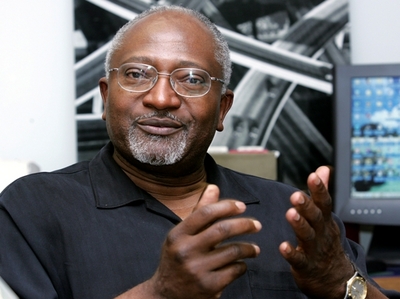The U.S. has over 136 million cars, 110 million trucks, and about 1 million buses for a total of 247 million registered vehicles accounting for nearly 70 percent of our oil use and more than 65 percent of that amount is for personal vehicles. The United States accounts for almost one-third of the world's vehicles. Car ownership is almost universal in the United States with 91.7 percent of American households owning at least one motor vehicle. According to the 2001 National Household Travel Survey (NHTS), 87.6 percent of whites, 83.1 percent of Asians and Hispanics, and 78.9 percent of blacks rely on the private car to get around.
Lack of car ownership and inadequate public transit service in many central cities and metropolitan regions with a high proportion of "captive" transit dependents exacerbate social, economic, and racial isolation--especially for low-income families and people of color residents who already have limited transportation options. Millions of Americans are left on the side of the road. Nationally, only 7 percent of white households own no car, compared with 24 percent of African American households, 17 percent of Latino households, and 13 percent of Asian-American households.
Only about 5.3 percent of all Americans use public transit to get to work. In areas with populations from one million and below, more than half of all transit passengers have incomes of less than $15,000 per year. Budget cuts in recent years have forced 84 percent of U.S. transit systems to raise fares, cut service, or both. Rising gas prices has pushed more drivers to public transit. High gas prices have forced painful sacrifices. This pain at the pump is not evenly distributed. The nation's poor drivers pay more and are hit hardest.
On May 5, regular unleaded gas was above $4 a gallon in 13 states and the District of Columbia. The national average for regular unleaded was $3.982 a gallon, the highest average price since July 26, 2008. Nationwide, American drivers are estimated to spend 8.7 percent of their median income in 2011 on gas, according to the Oil Price Information Service (OPIS). In 2008, they spent $3836 or 7.7 percent of their median income to fill up their cars.
In urban areas, African Americans and Latinos comprise over 54 percent of transit users (62 percent of bus riders, 35 percent of subway riders, and 29 percent of commuter rail riders). African Americans are almost six times as likely as whites to use transit to get around.
On average, states spend just 55 cents per person of their federal transportation funds on pedestrian projects, less than 1 percent of their total federal transportation dollars. Roads get the lion share of transportation funds--a pattern often referred to as highway robbery. Average spending on highways came to $72 per person. Thirty states restrict the use of the gasoline tax revenue for funding highway programs only. Historically, the federal transportation funding scheme has been bias against metropolitan areas. Just 6 percent of all federal highway dollars are sub-allocated directly to metropolitan regions.
Numerous reports, including studies of federal American Recovery and Reinvestment Act of 2009 (ARRA) spending, have consistently found that public transportation creates more jobs than highways. Every billion dollars spent on public transportation produced 16,419 job -- months. On the other hand, every billion dollars spent on projects funded under highway infrastructure programs produced 8,781 job -- months.
A 2010 Transportation Equity Network study, More Transit=More Jobs, estimates that a 50 percent shift in present highway spending to transit in 20 metropolitan areas would create 1,123,674 new transit jobs over five years, for a net increase of 180,150 jobs--all without a dollar of new spending. The report also illustrates the number of new jobs generated by passing a transit-friendly federal Transportation Reauthorization Act--1,291,431 new jobs in the transit sector over five years--an increase of almost 800,00 jobs over the current federal transportation law, SAFETEA-LU. Every $1 invested in public transportation generates $6 in local economic activity. Given these facts, it makes a lot of economic sense to shift funding priorities to passing federal transit-friendly legislation going forward rather than continuing down the path of building roads to nowhere.





